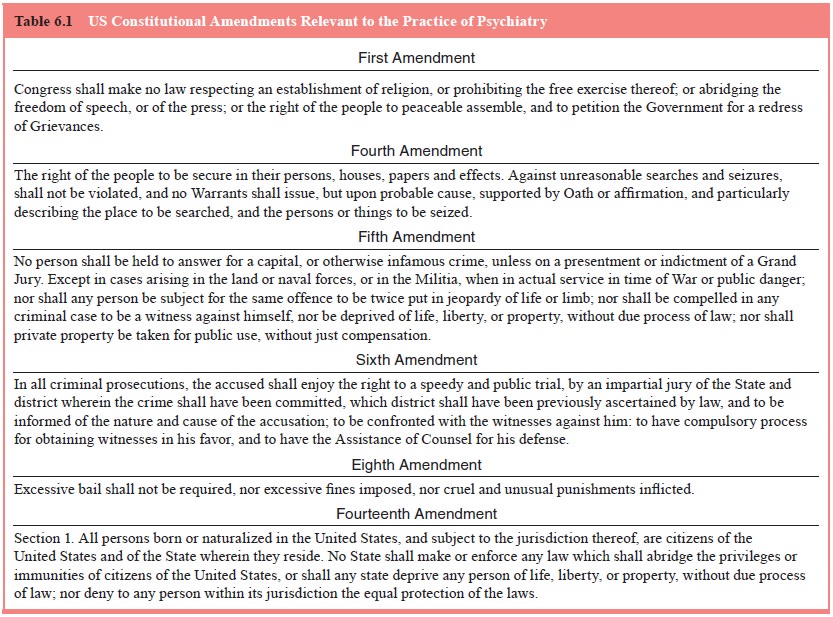Chapter: Essentials of Psychiatry: Law, Ethics and Psychiatry
Overview of Legal Principles
Overview of Legal Principles
The development of legal principles is the result
of the interplay of legislatures that enact laws, executive branches that
enforce them and courts that interpret them. The first level of courts are
trial courts, where cases are tried and decided. Appeals courts generally hear
arguments by parties who feel that lower courts have made errors of law which
require reversal of the lower court decision. The federal and most state court
systems have two lev-els of appeals courts (an Appeals Court and a Supreme
Court, although terminology varies among jurisdictions). The highest court in
the land is the US Supreme Court, which is the final arbi-ter of questions of
Federal and Constitutional Law.
Cases decided in state courts set the law only for
the state in which the case is decided. Although state decisions may
ulti-mately influence one another, no state is required to abide by the
precedent of a different state’s courts. For instance, the Tarasoff case
discussed below set standards in California for a mental health professional’s
duty to protect a third party from the danger posed by a client. Although that
case only applied to practice in California, it has had a great influence on
legal and clinical prac-tice in other states. Similarly, federal Appeals Courts
set prec-edent only for the Circuits in which they sit. Only when the US
Supreme Court has ruled on a matter of law are all other state and federal
courts required to follow the precedent.
Each state also has a constitution that may be more
protective of individuals’ rights or more limiting of the states’ power than
the federal constitution. State courts can make decisions interpreting their
own constitutions or the federal constitution. While federal Appeals Courts and
ultimately the US Supreme Court can overrule a state court’s interpretation of
the federal constitution, the state supreme court has the final word on the
state’s constitution, so long as the state constitution does not violate the
federal constitution. (For instance, a state constitution may provide greater
protection against police searches than the federal constitution, but not less.)
The specific legal rights and principles with which
we will concern ourselves are found in the amendments to the US Con-stitution.
Of particular interest to psychiatry are the following constitutional
amendments: the First Amendment, which embod-ies the right to freedom of speech
and religion; the Third and Fourth Amendments, which have been interpreted as
implying a right to privacy; the Fifth Amendment, which grants the right to
remain silent in a criminal case; the Sixth Amendment, which discusses the
rights of defendants to fair and speedy trials; the Eighth Amendment, which
proscribes cruel and unusual punish-ment; and the Fourteenth Amendment, which
embodies the “due process’’ and “equal protection of the law’’ clauses (Table
6.1).

Related Topics